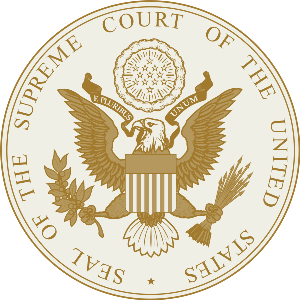In an unusual unanimous decision, the US Supreme Court Wednesday ruled that police in almost all cases must obtain a search warrant before searching cell phones or other mobile devices. The ruling brings the huge amounts of data Americans store on cellphones, smartphones, and other mobile devices under the umbrella of constitutional privacy protections.

In ruling in favor of Americans' privacy, the high court rejected law enforcement arguments that cell phone searches did not require a warrant under an exception that allows police to search the contents of arrested people's pockets to ensure that they are not armed or do not destroy evidence. While that may be convenient for law enforcement, the court held, constitutional rights trump convenience.
The court was clearly aware that modern hand-held devices contain both the quality and quantity of information deserving protection as much as that afforded to people's personal property and effects in their homes.
"Modern cellphones aren't a technological convenience," Chief Justice John Roberts wrote in the unanimous opinion "With all they contain and all they may reveal, they hold for many Americans 'the privacies of life,'" he wrote.
As for law enforcement concerns that the court's ruling would prove an obstacle to some police investigations, Roberts had a pithy retort: "Privacy comes at a cost," he wrote.
And if police have reason to believe such devices may contain relevant evidence, they have recourse, Roberts wrote.
"Our answer to the question of what police must do before searching a cellphone seized incident to an arrest is accordingly simple -- get a warrant."
Of course, that means police must convince a magistrate they have probable cause to seek a search warrant.
The American Civil Liberties Union liked what it saw in the decision.
"By recognizing that the digital revolution has transformed our expectations of privacy, today's decision is itself revolutionary and will help to protect the privacy rights of all Americans," said ACLU legal director Steven R. Shapiro in a Wednesday statement. "We have entered a new world but, as the court today recognized, our old values still apply and limit the government's ability to rummage through the intimate details of our private lives."
This work by StoptheDrugWar.org is licensed under Creative Commons Attribution-ShareAlike 4.0 International
Add new comment